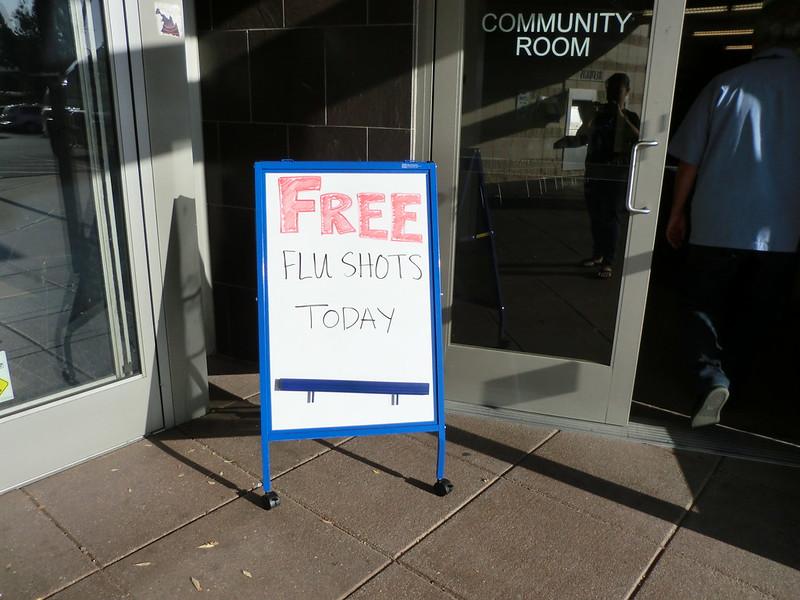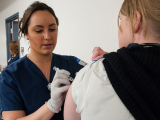Simply asking patients to get the flu vaccine during emergency department (ED) visits may double vaccination rates—or raise them even higher if the request is combined with helpful video and print messages, according to a study this week in NEJM Evidence.
The study, led by researchers at the University of California-San Francisco (UCSF), compared two interventions among 767 non-critically ill adult patients seen in the ED who were not yet vaccinated against influenza. The study was conducted in San Francisco, Houston, Philadelphia, Seattle, and Durham, North Carolina, during a single flu season, from October 2022 to February 2023.
"This research arose from our desire to address the health disparities that we see every day in our emergency department, especially among homeless persons, the uninsured, and immigrant populations," said the study's first author, Robert M. Rodriguez, MD, a professor of emergency medicine at the UCSF School of Medicine, in a press release from that school.
Those groups, as well as Black and Hispanic Americans, are less likely to visit a primary care physician regularly.
Uptake increased from 15% to 32% to 41%
Flu vaccine uptake was measured among those given no intervention, those given no messaging about flu shots but were asked about intentions to get vaccinated, and those given an influenza vaccine messaging platform consisting of a video, 1-page flyer, and scripted message of, "Would you be willing to accept the influenza vaccine?"
All printed materials were delivered in both English and Spanish.
Among the 767 adults in the study, 32% said they had no primary care provider. Forty-six percent were women, 36% were Black, 21% were Hispanic, and 12% did not have health insurance.
Thirty days after their ED visit, participants were asked if they had received a flu vaccine. Among those with no intervention, 15% had gotten vaccinated. Thirty-two percent of those who were asked about their flu vaccine intentions were vaccinated, and 41% of those who watched a video, got the flyer, and were asked about their intentions had received a vaccine.
The fact that simply mentioning vaccination had such a positive impact on future vaccination rates among our sample is incredible.
"The fact that simply mentioning vaccination had such a positive impact on future vaccination rates among our sample is incredible, and makes a strong case for incorporating vaccine messaging into emergency department workflows," said coauthor Efrat Kean, MD, an emergency medicine physician from Thomas Jefferson University, in a press release from that school.




















